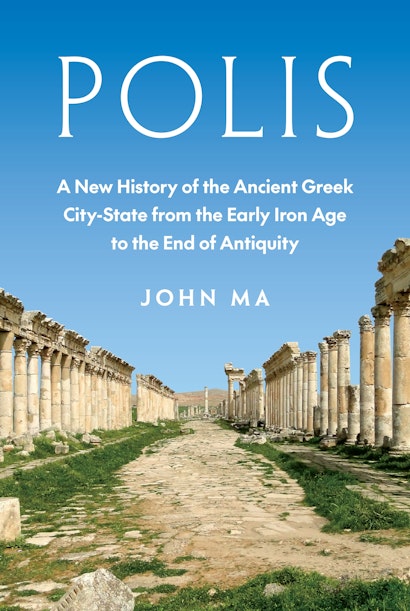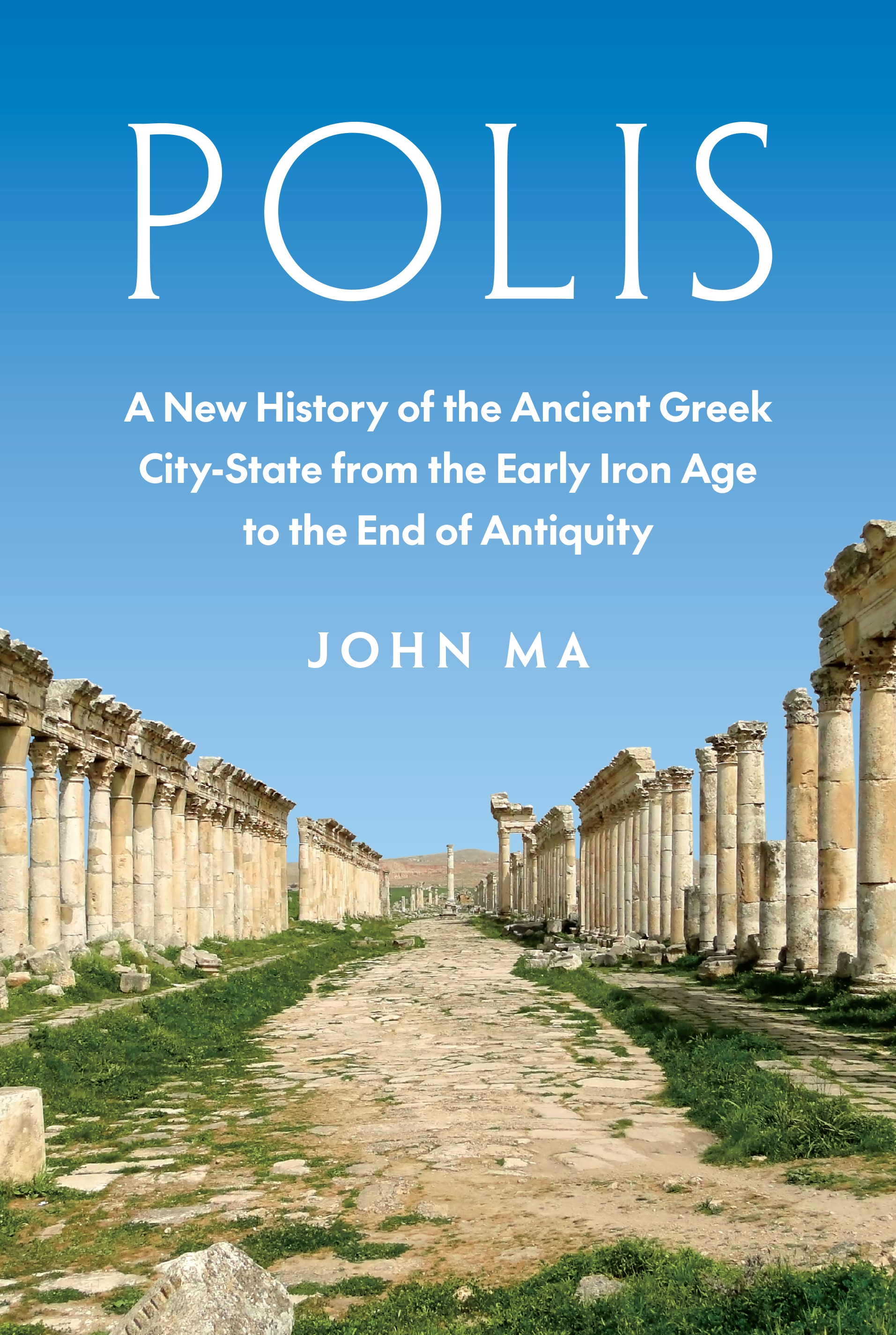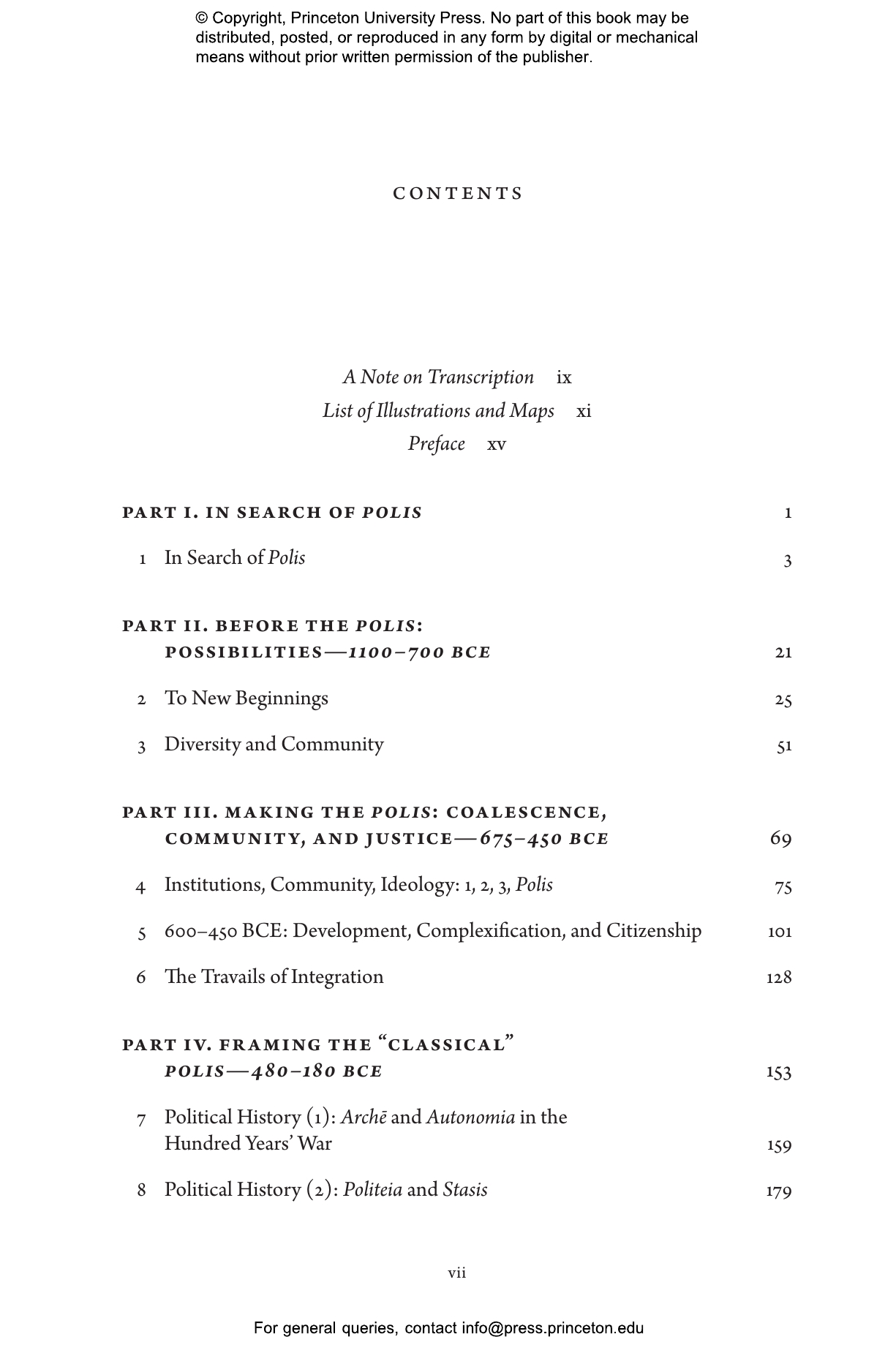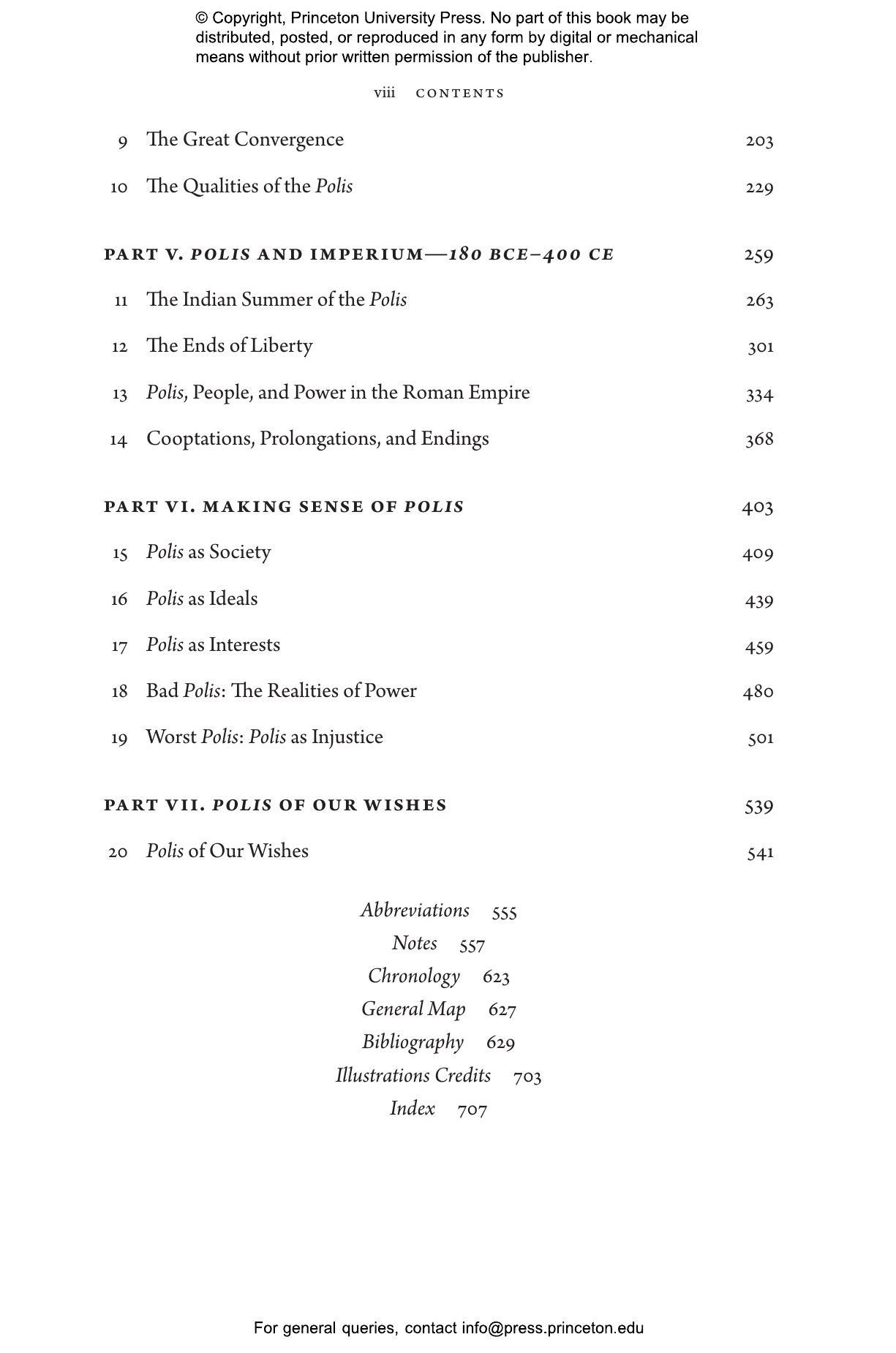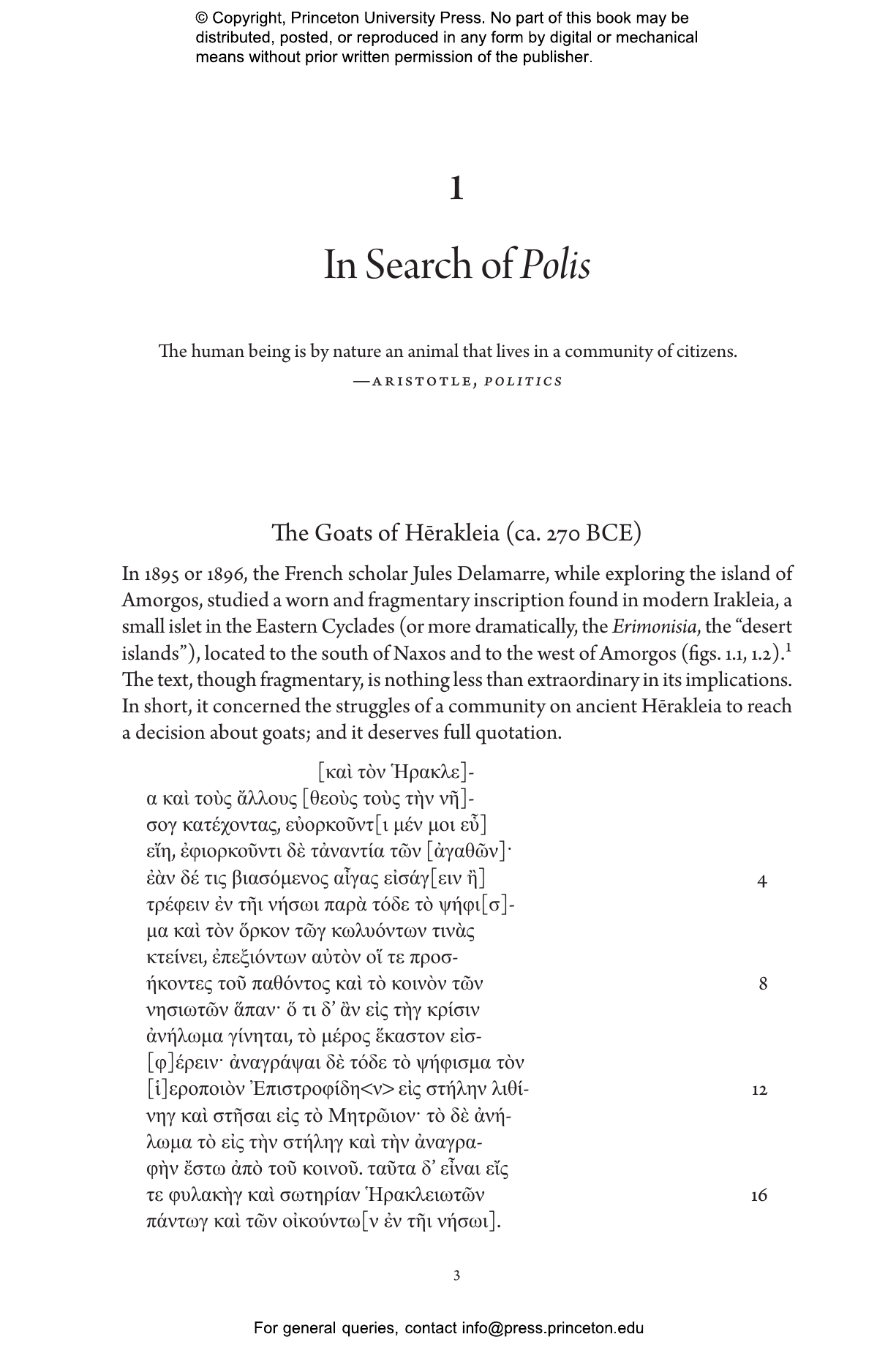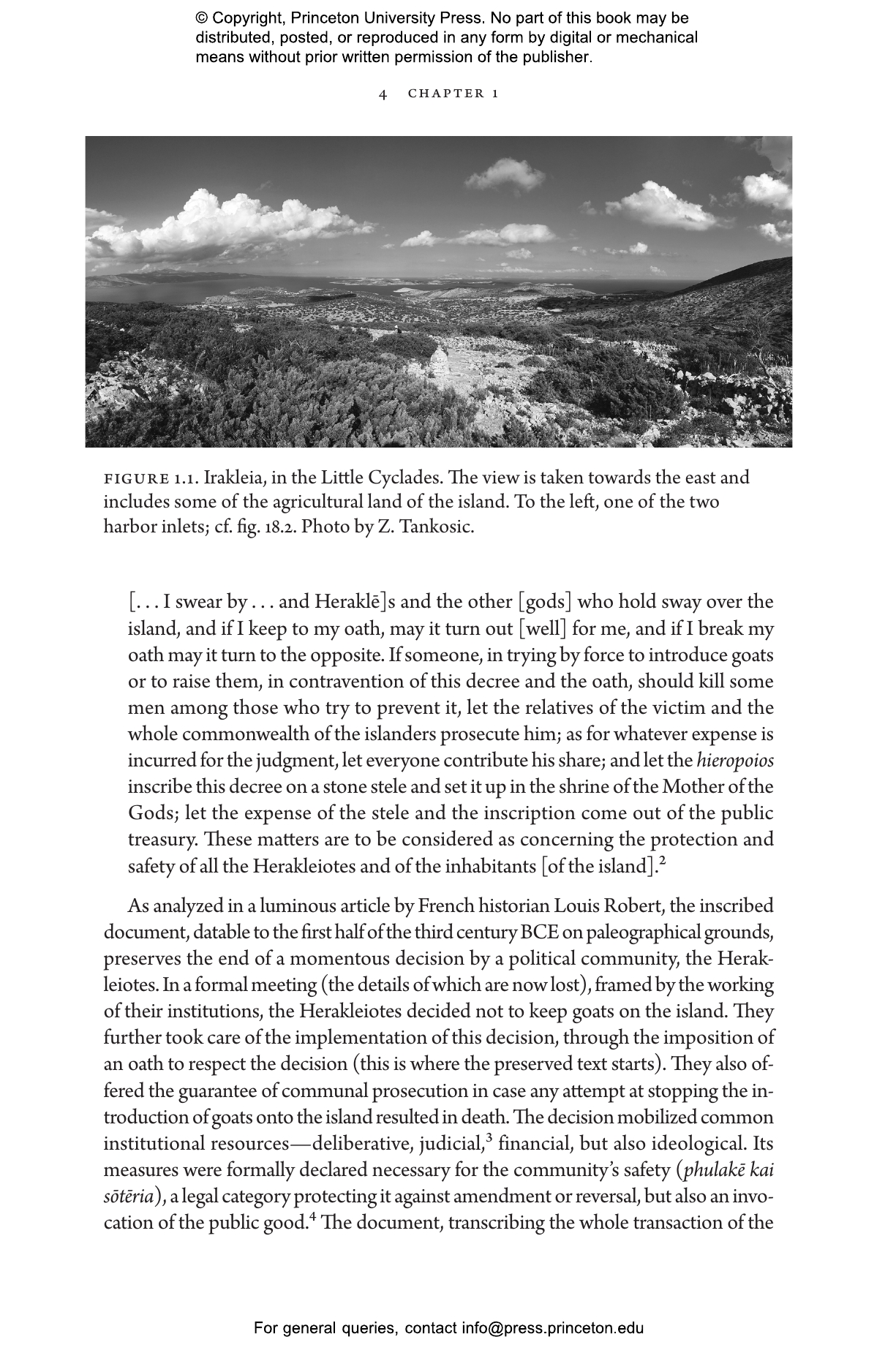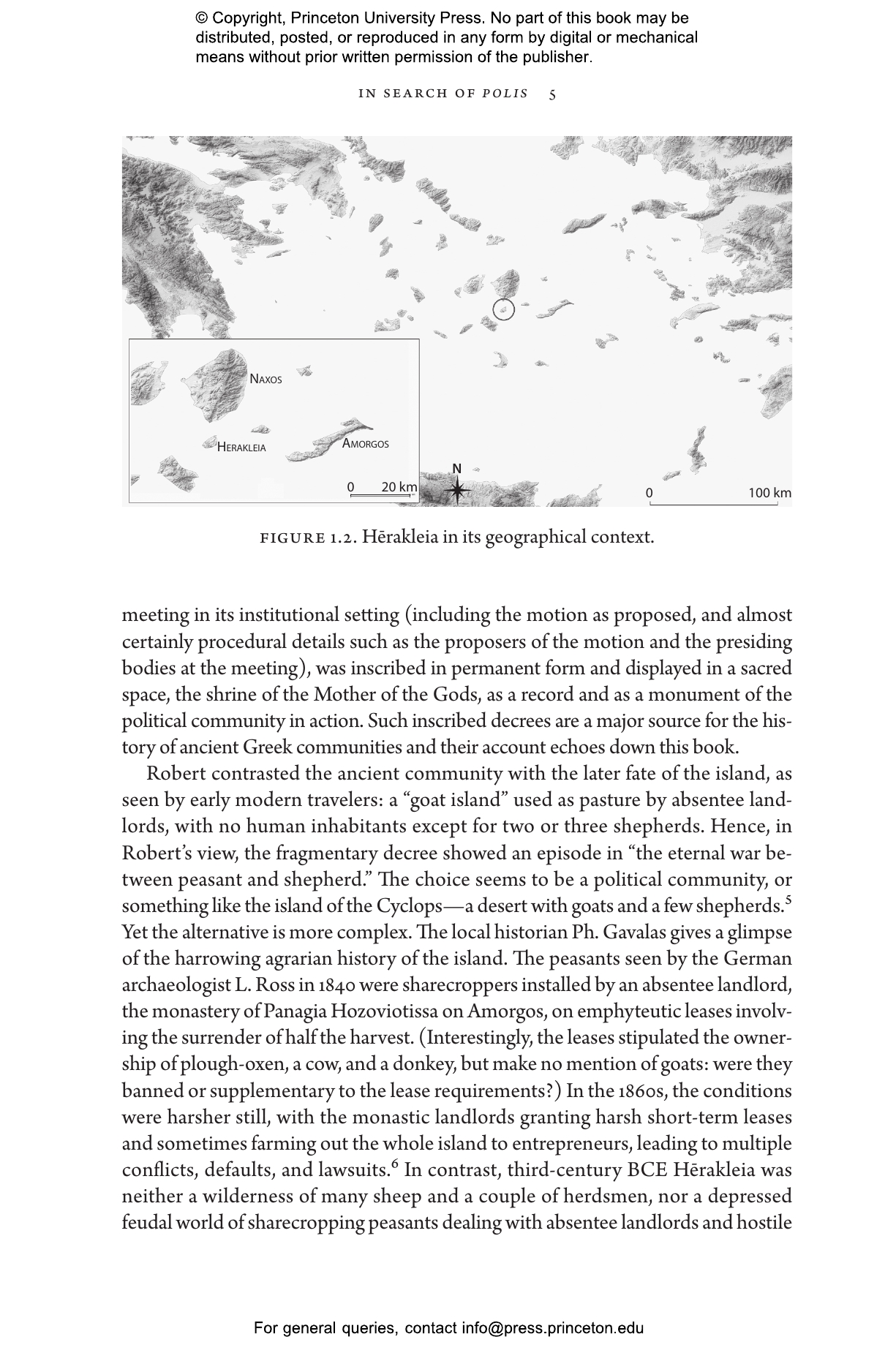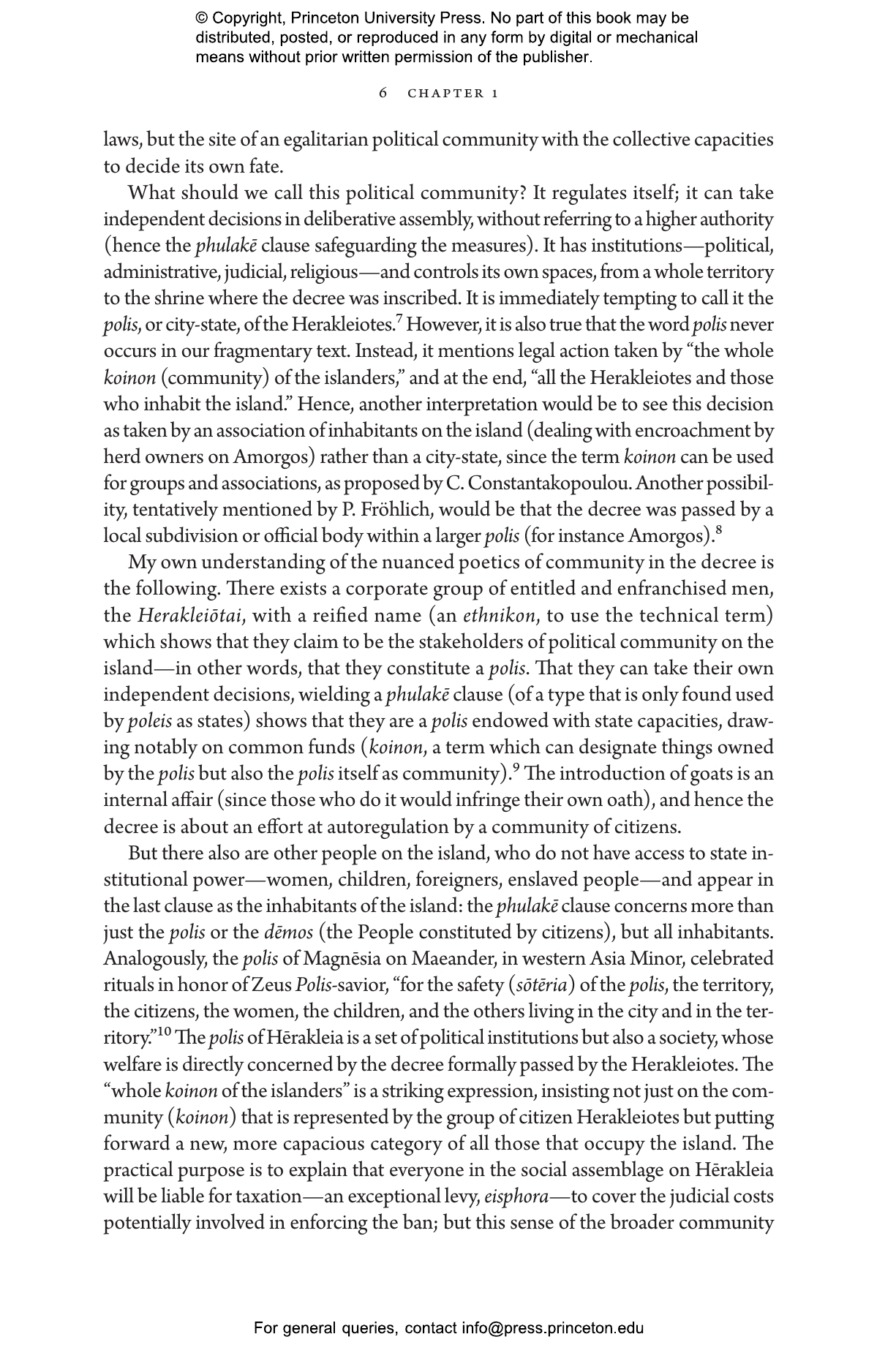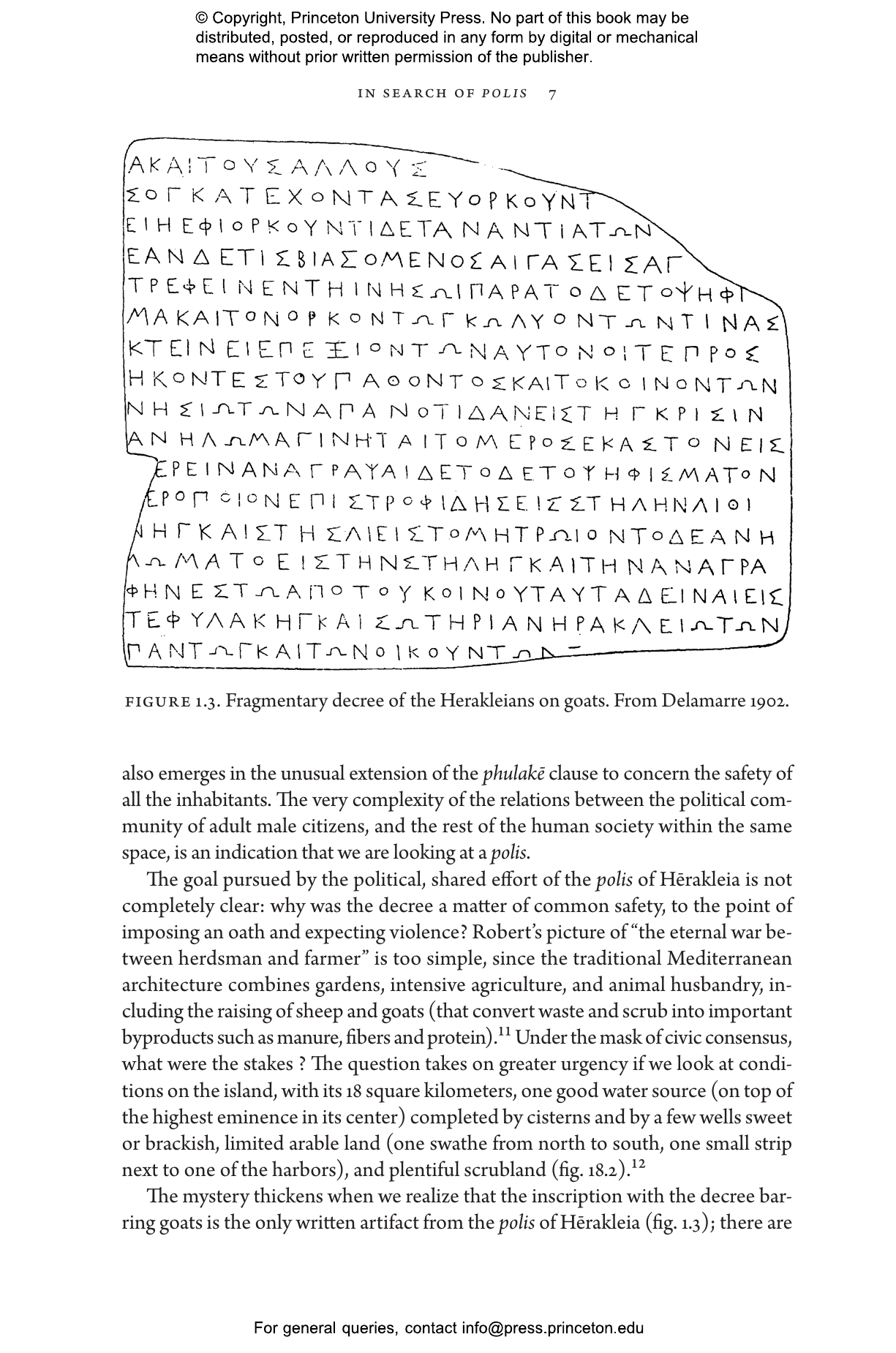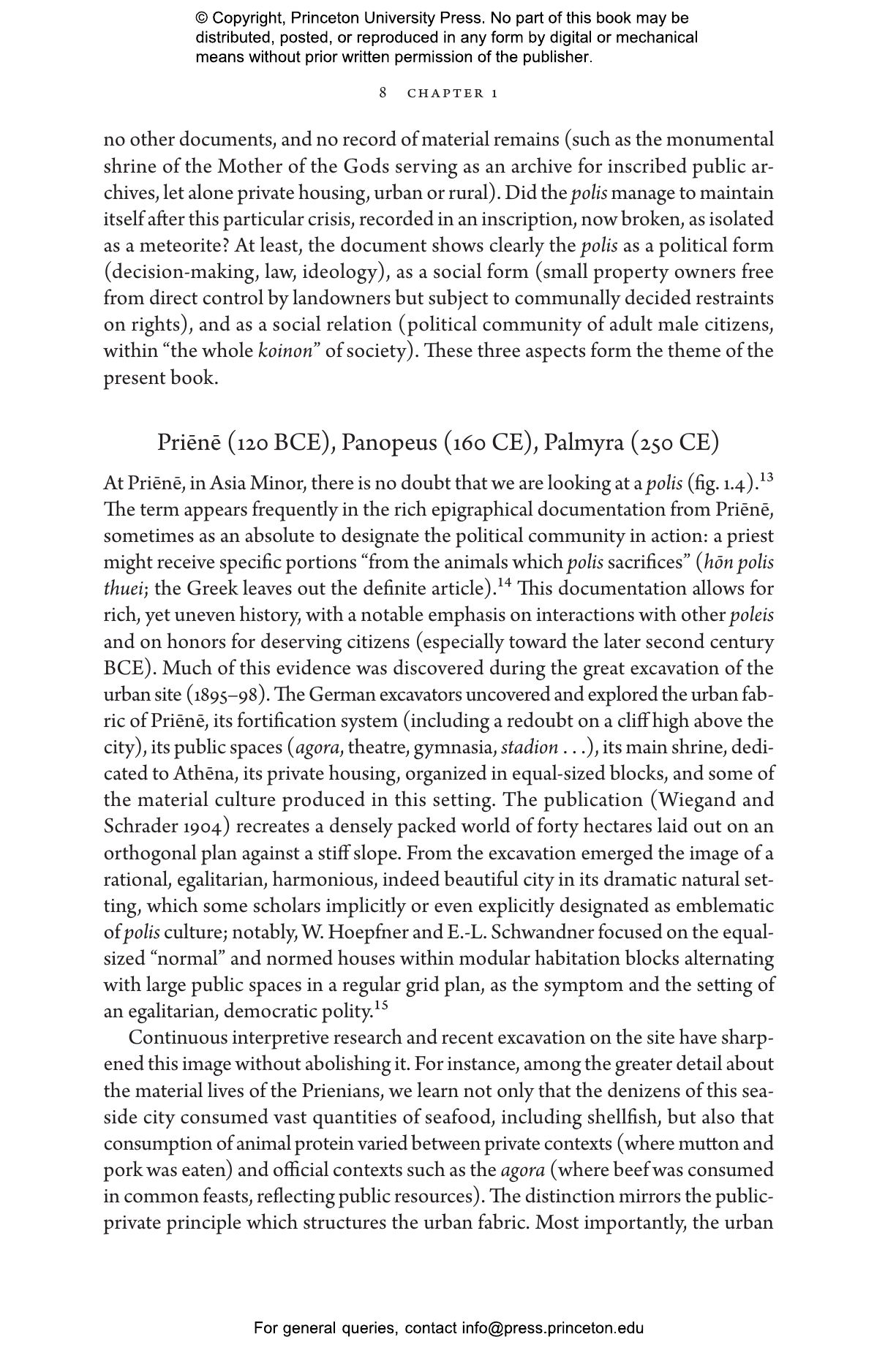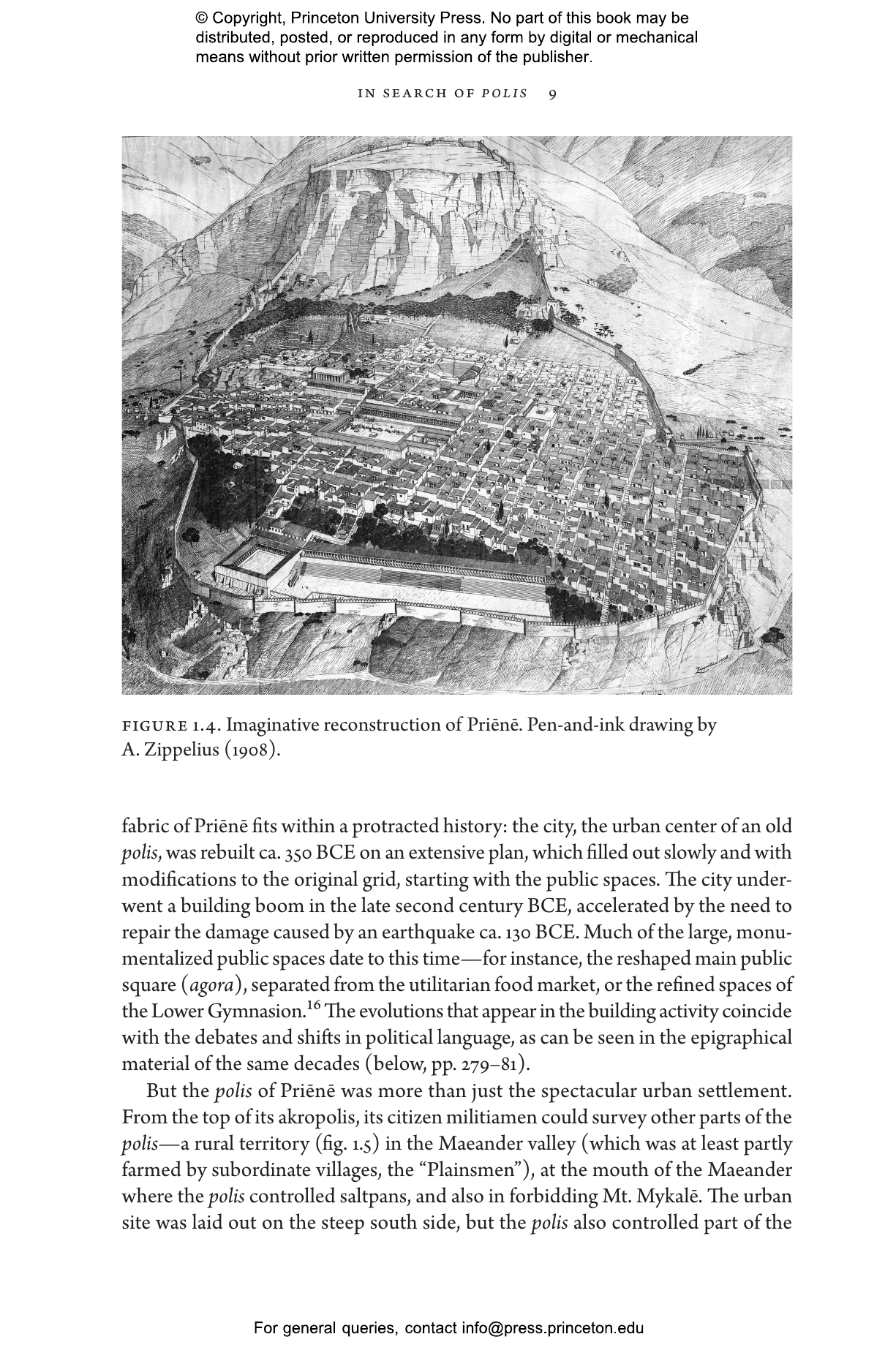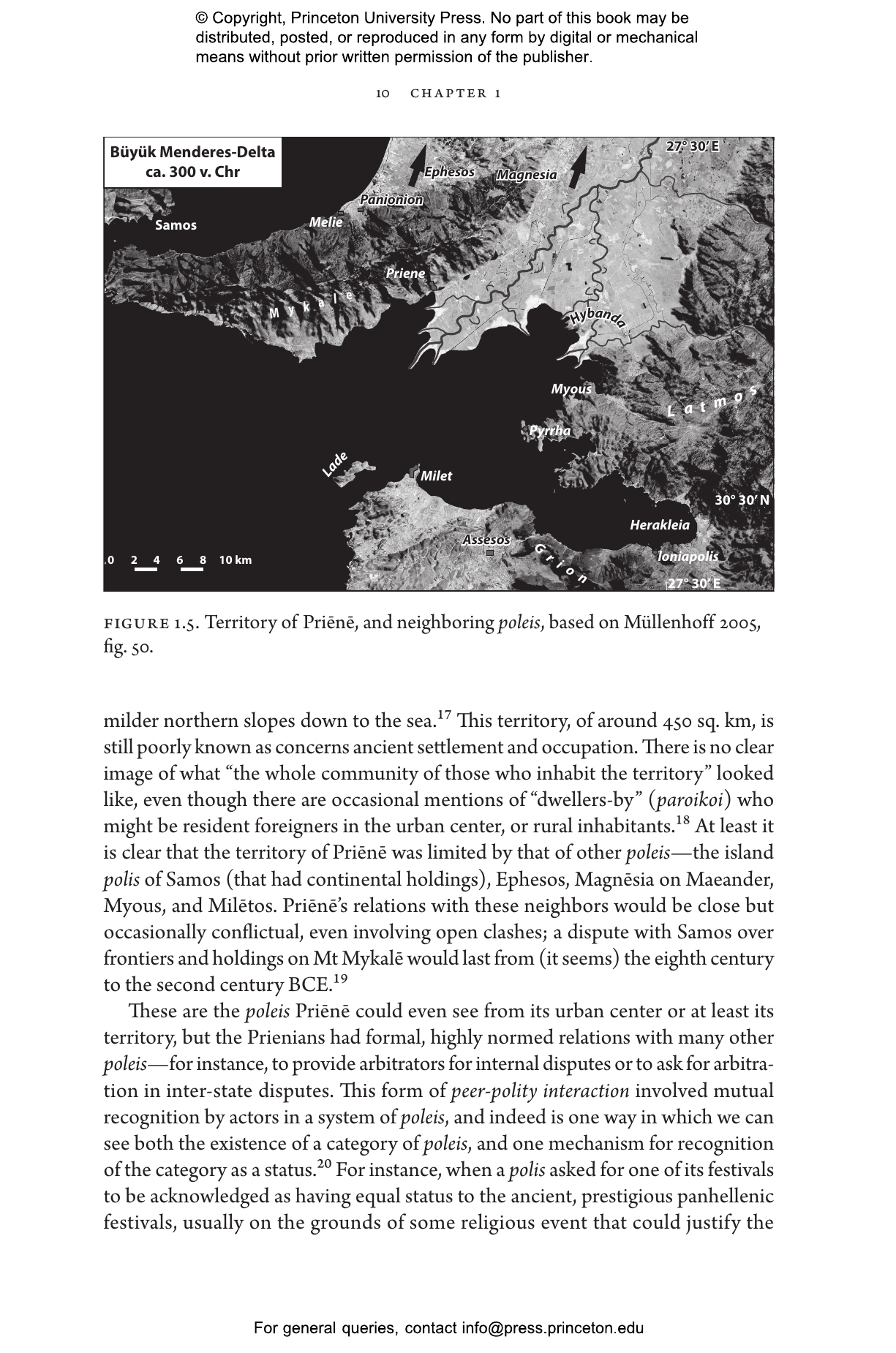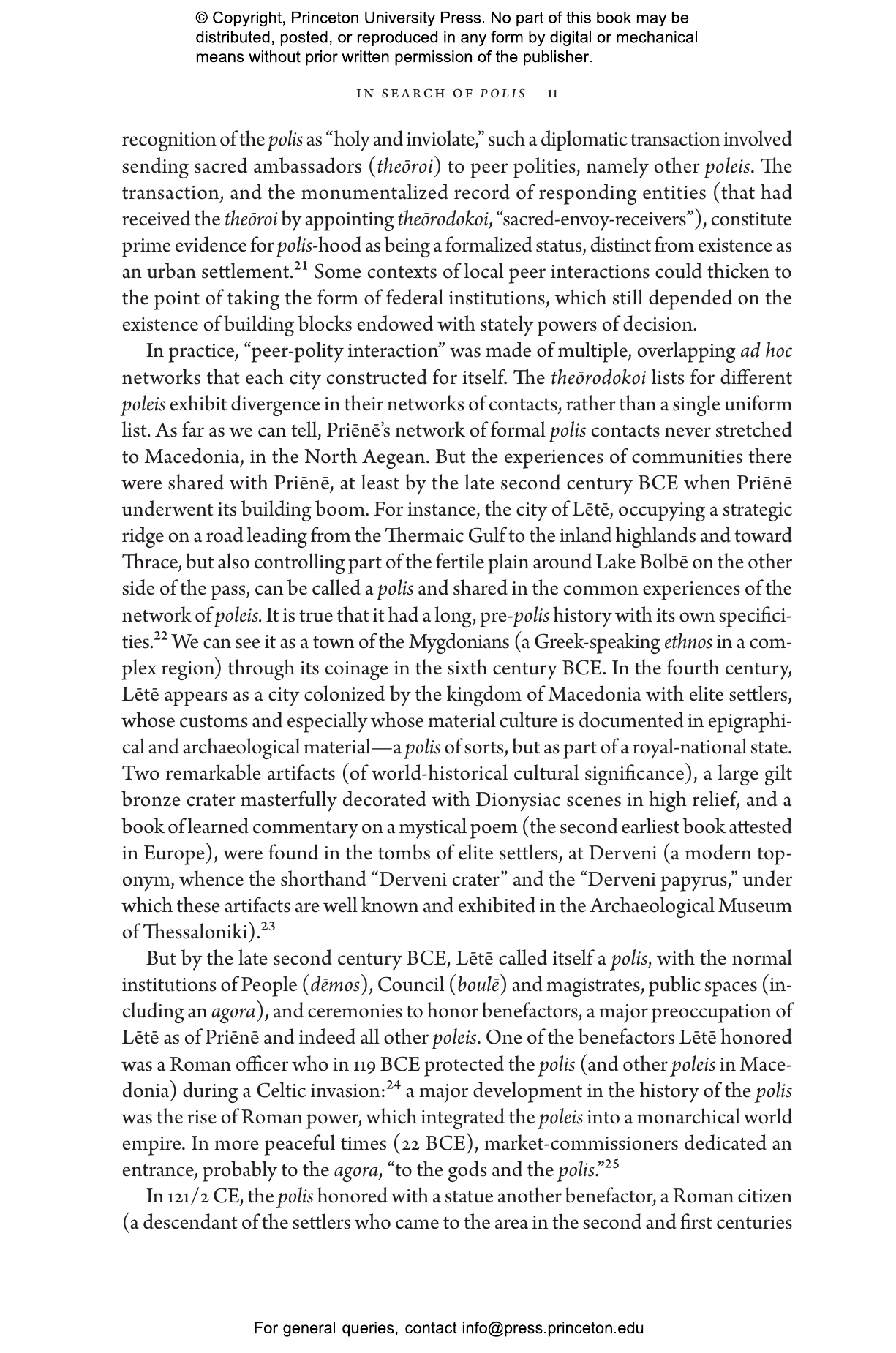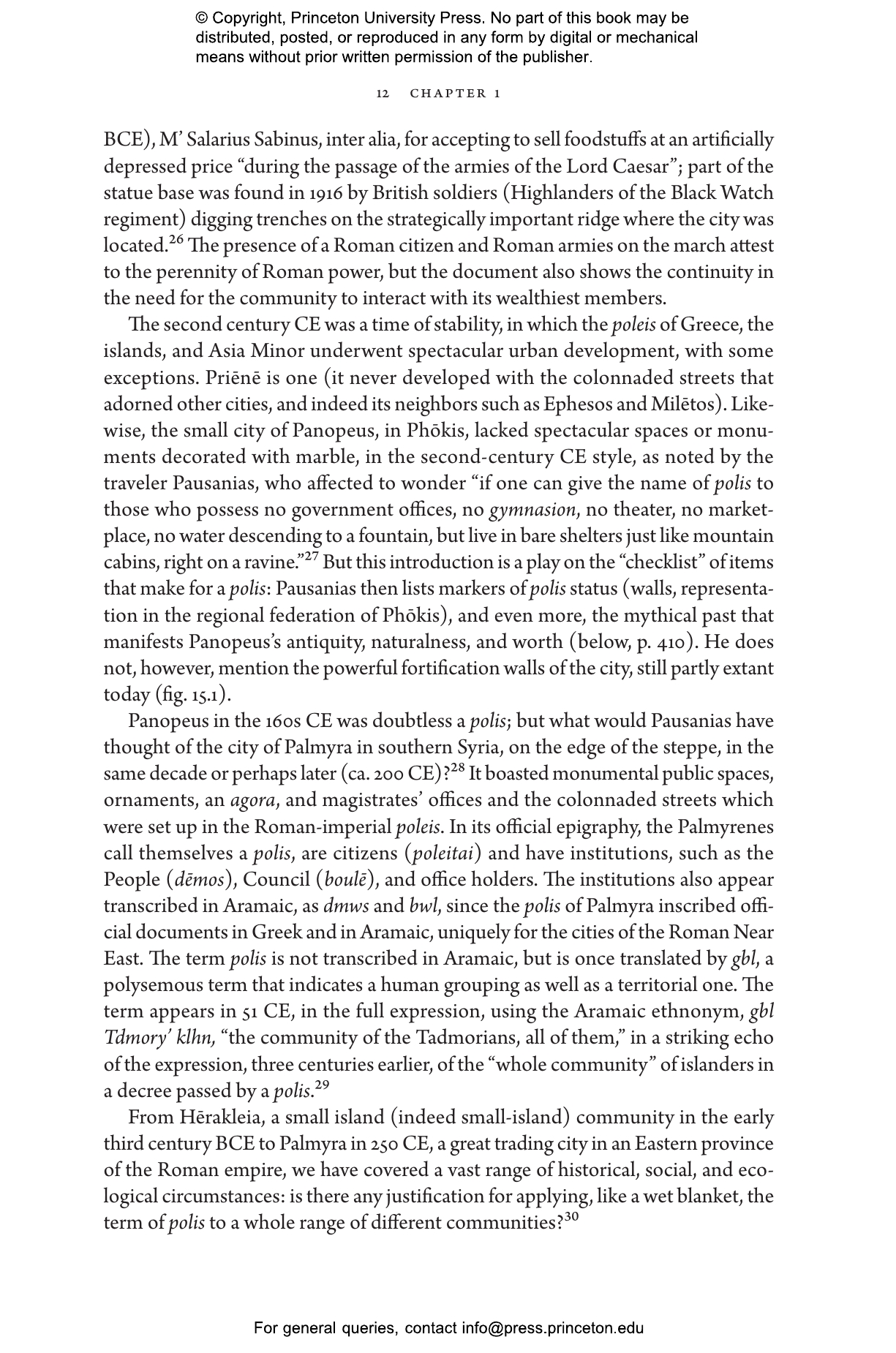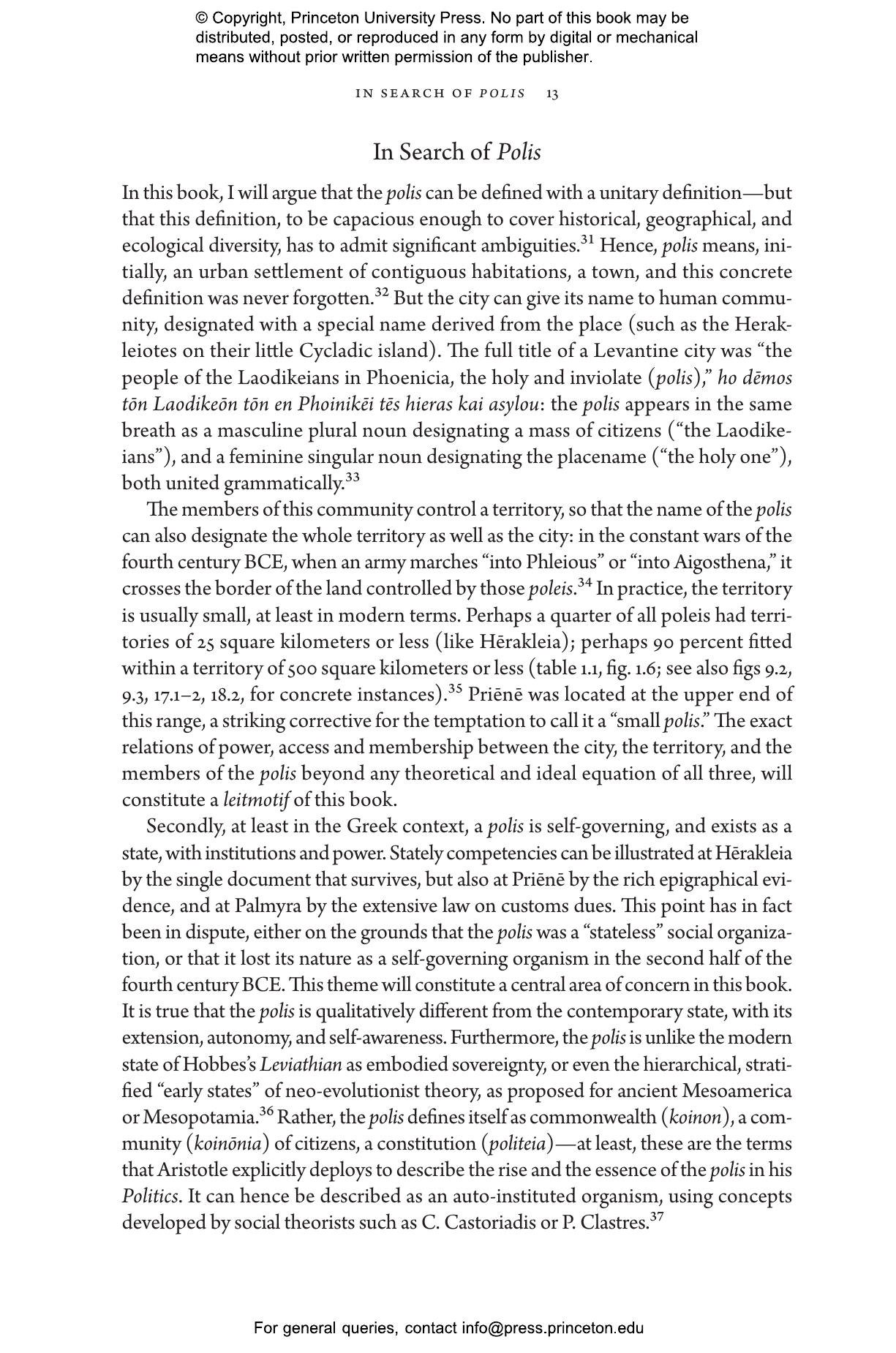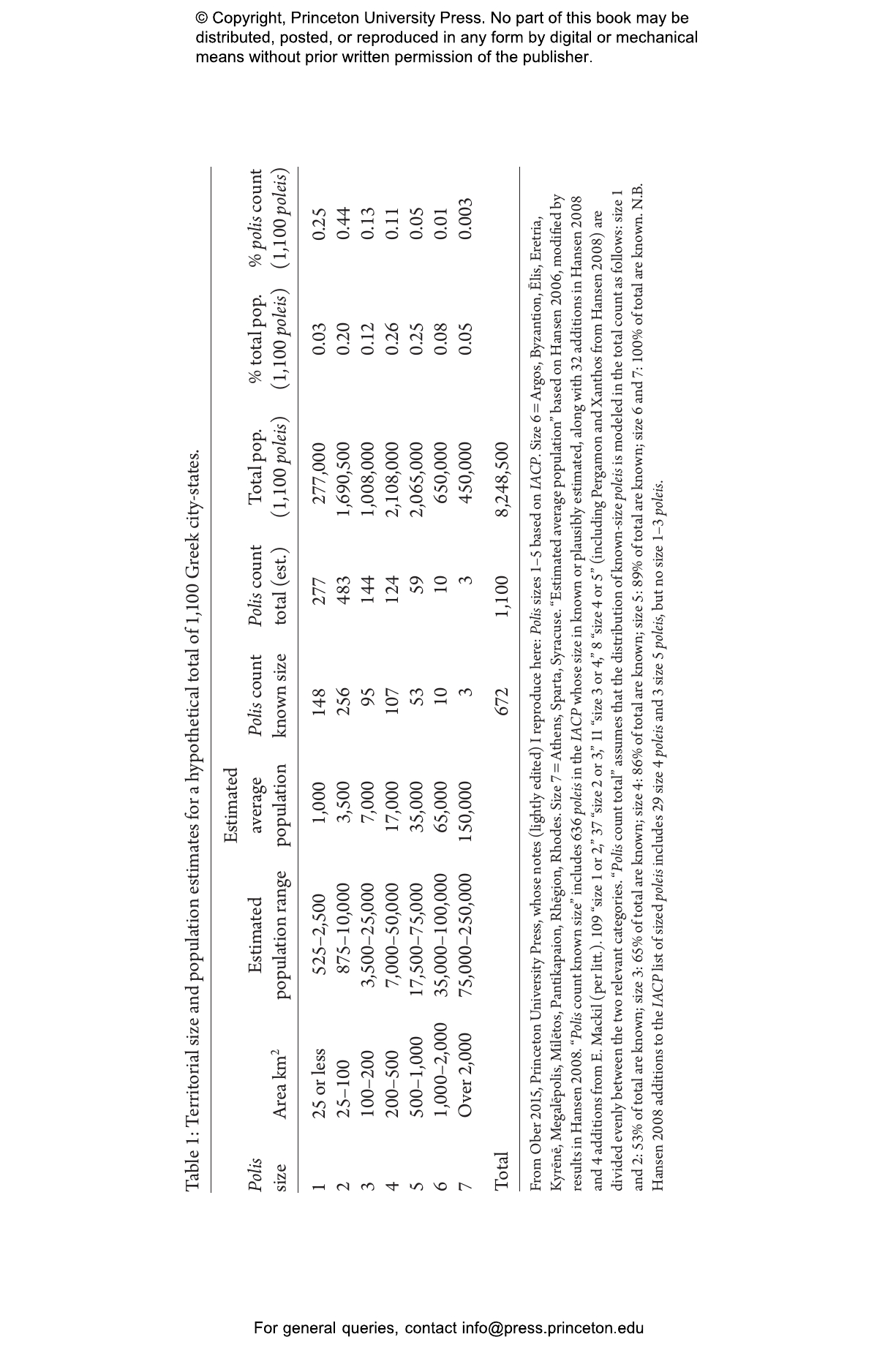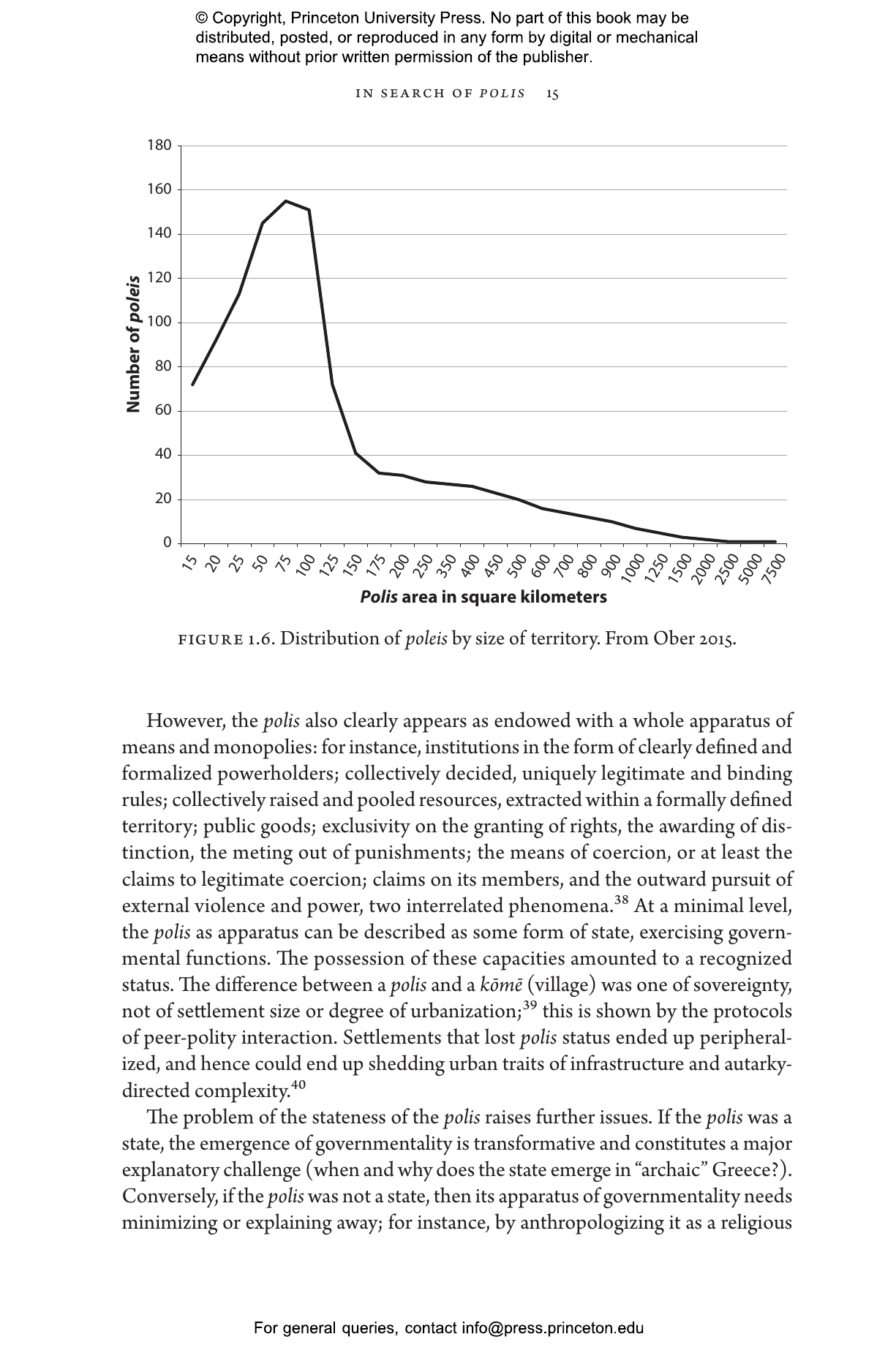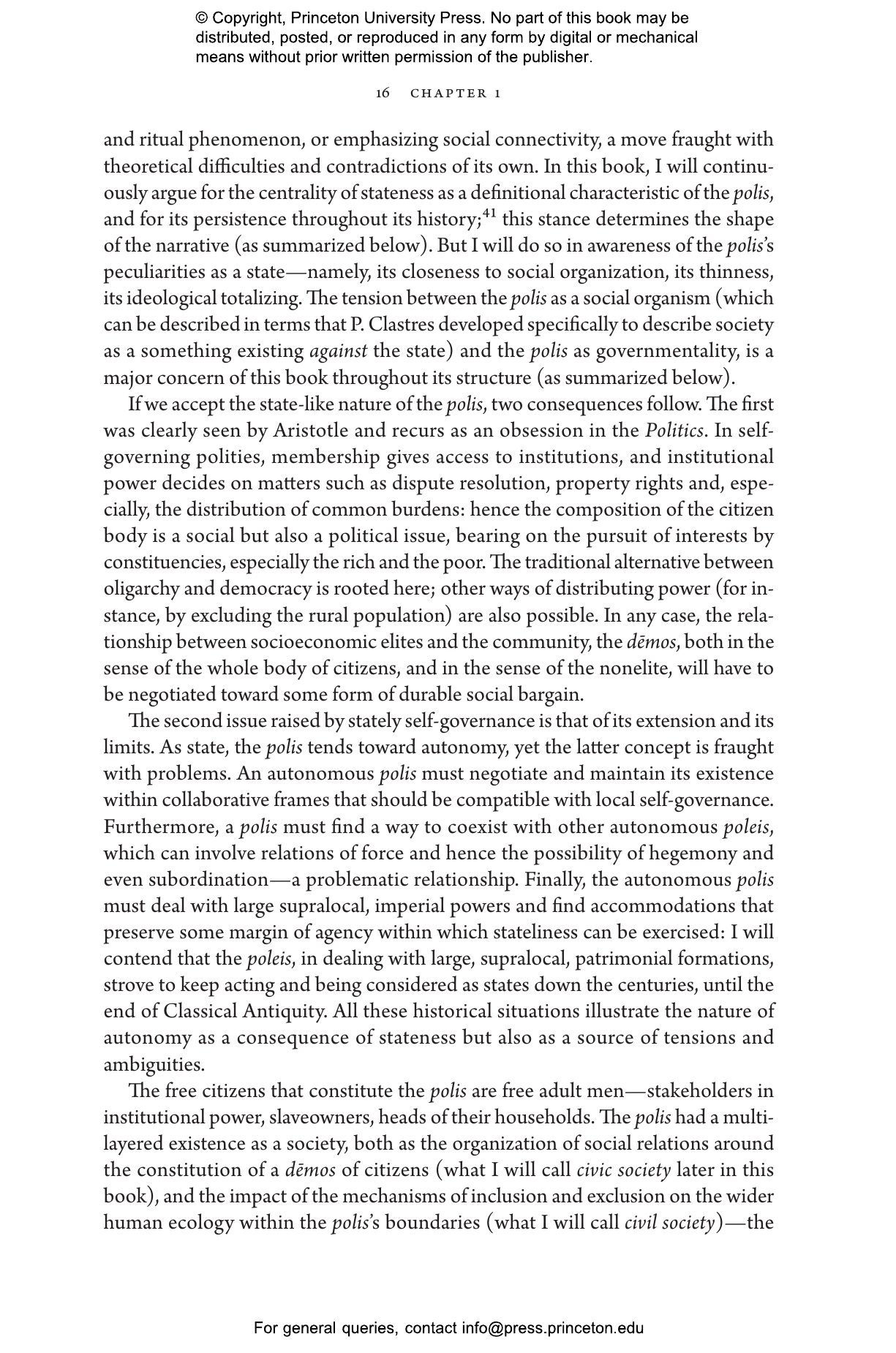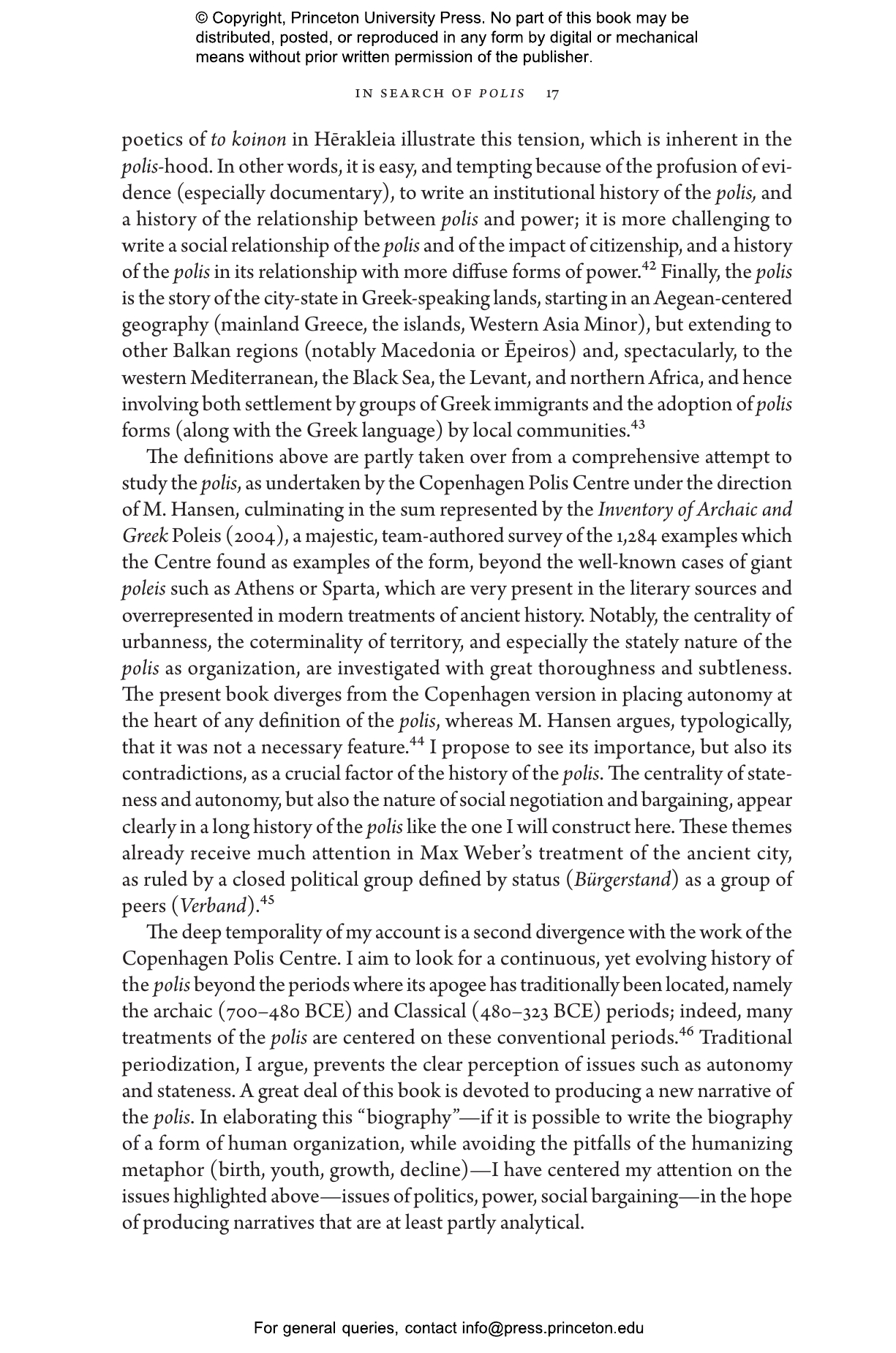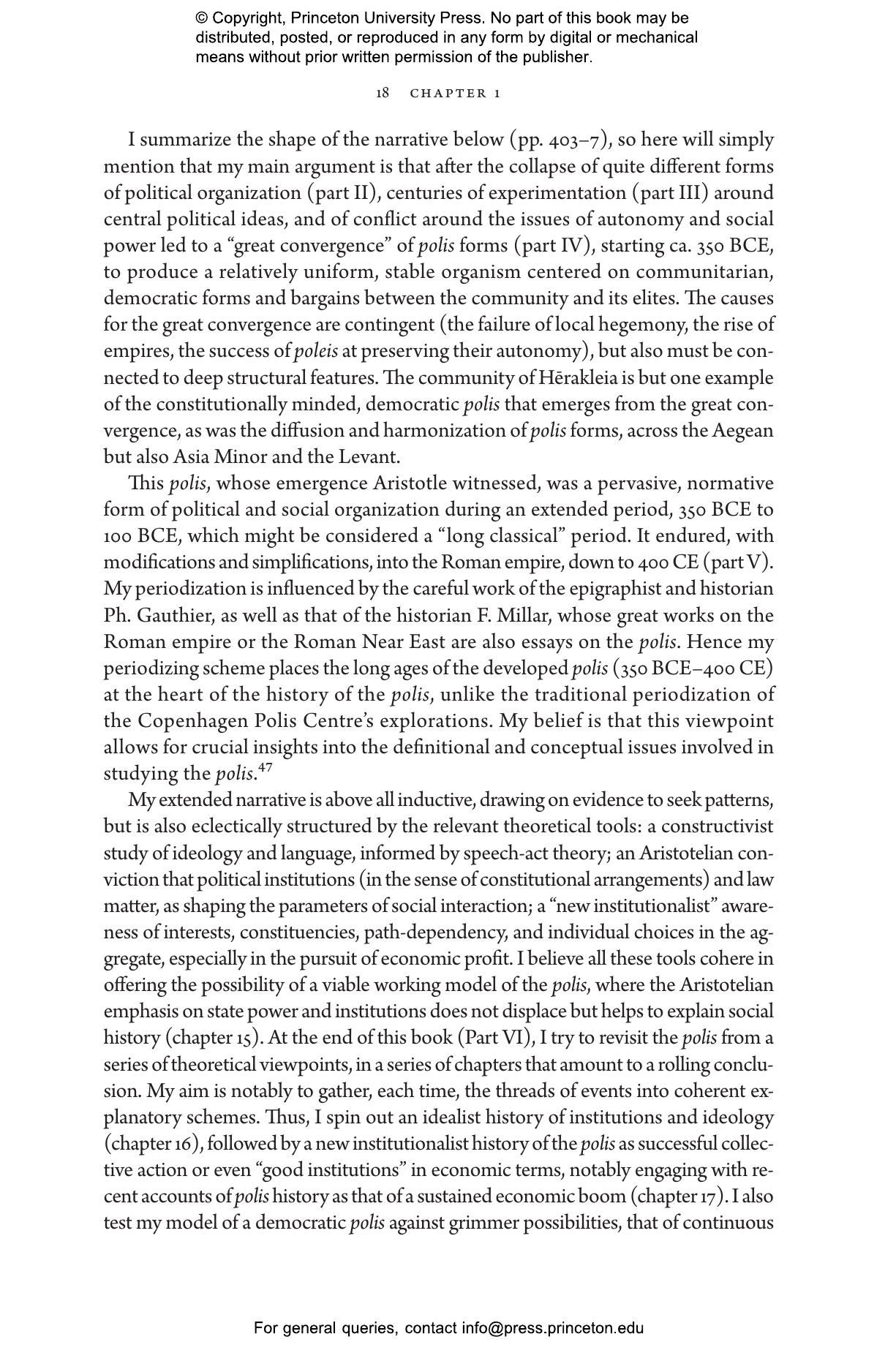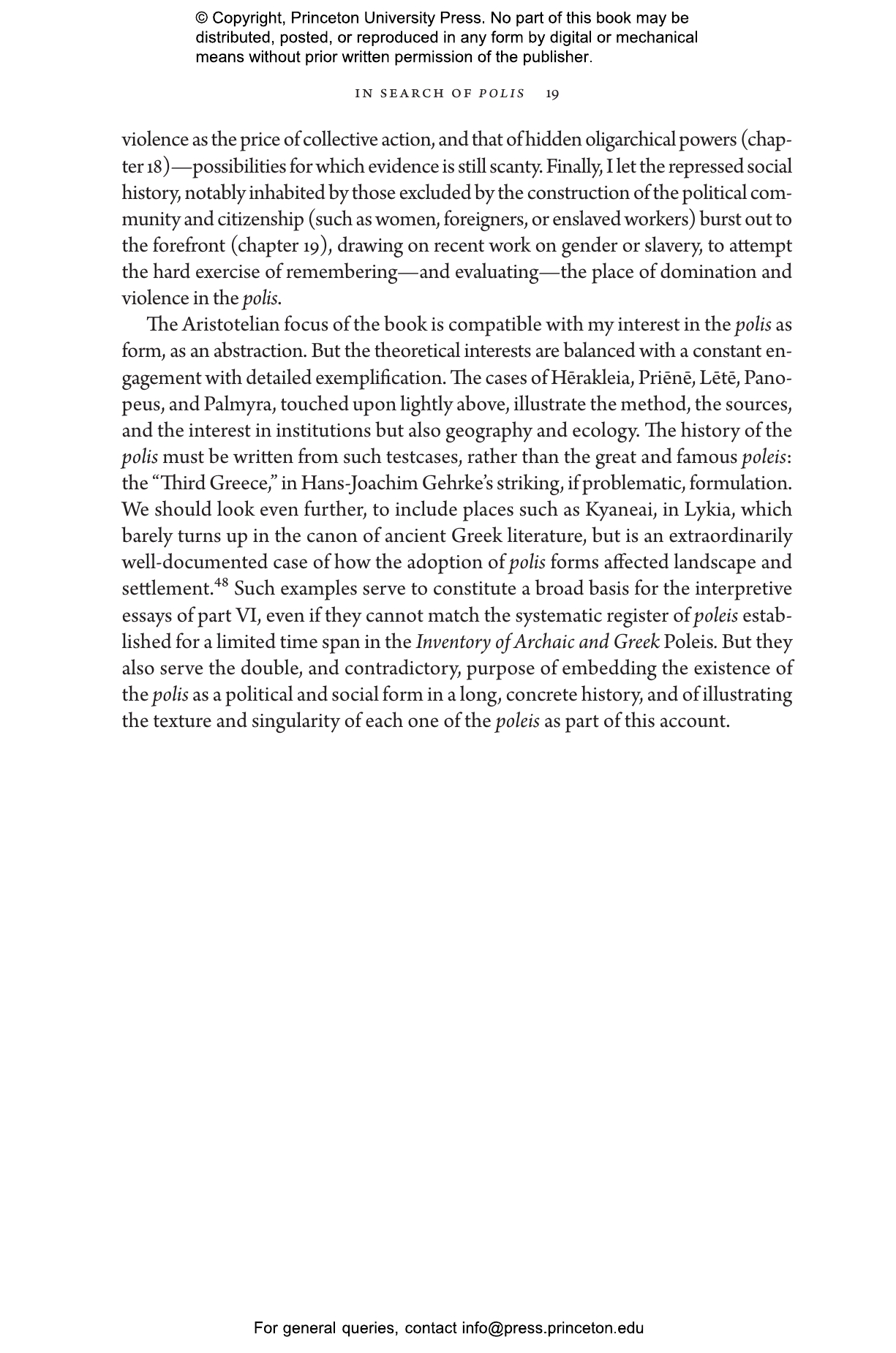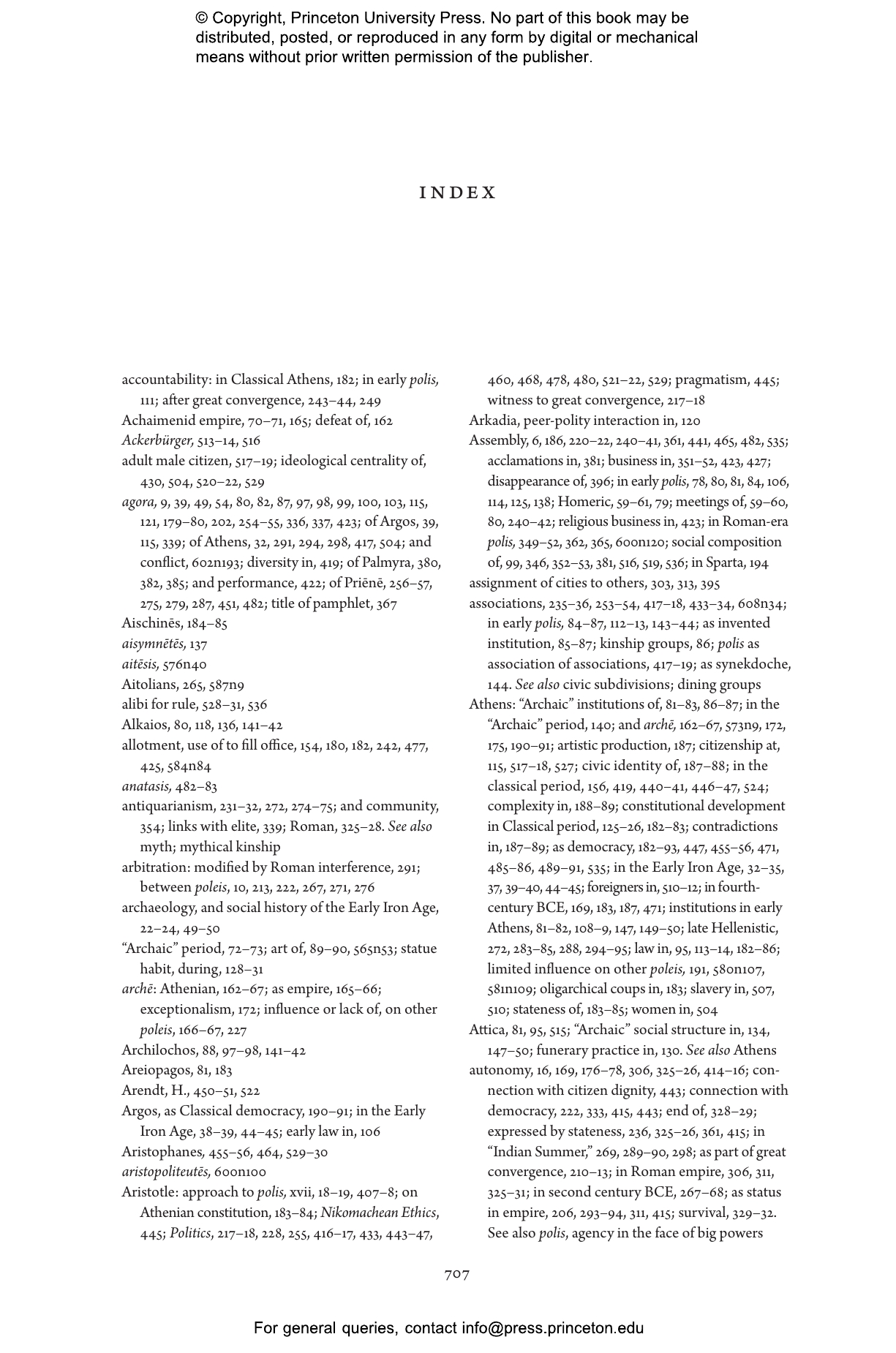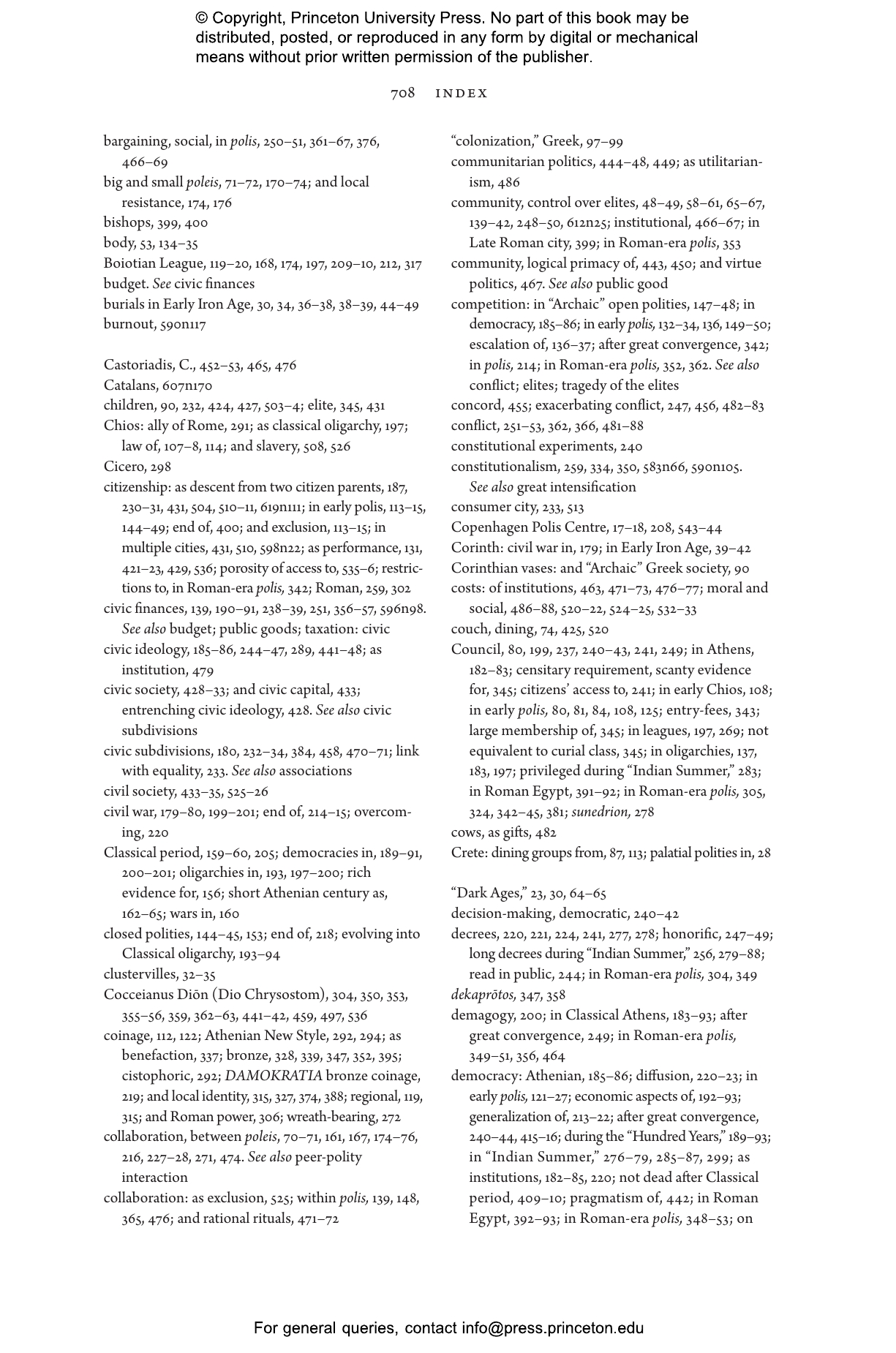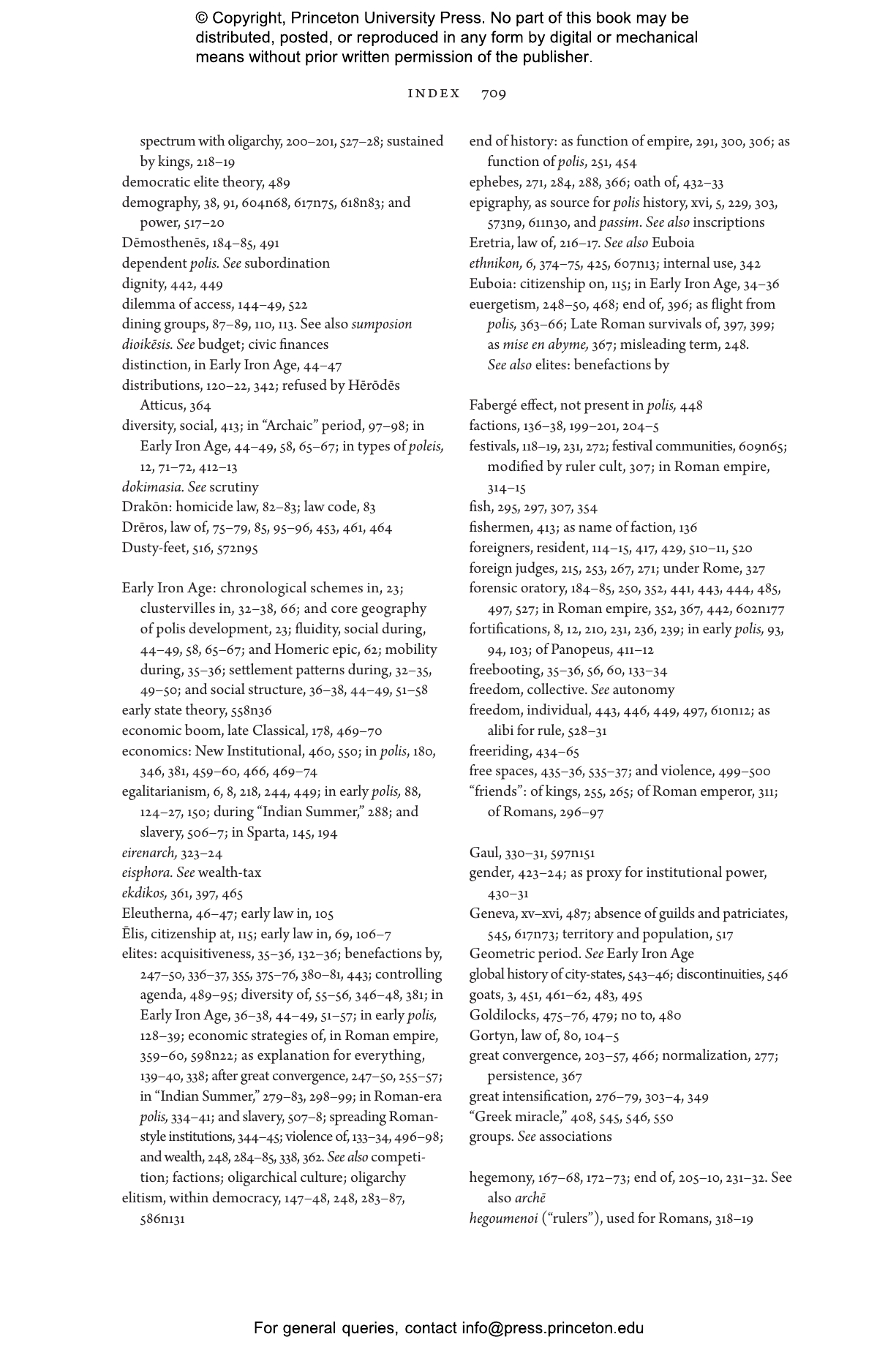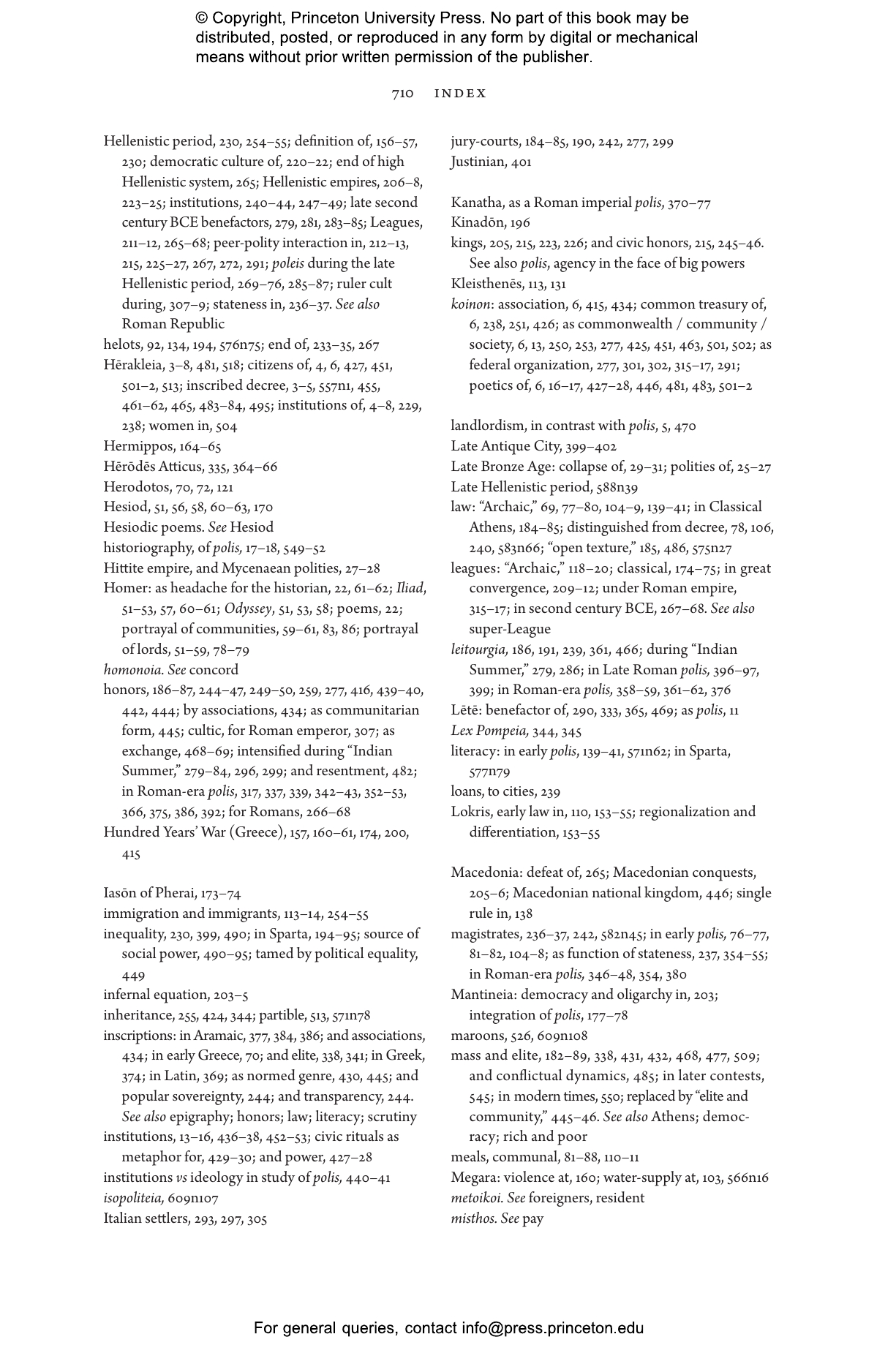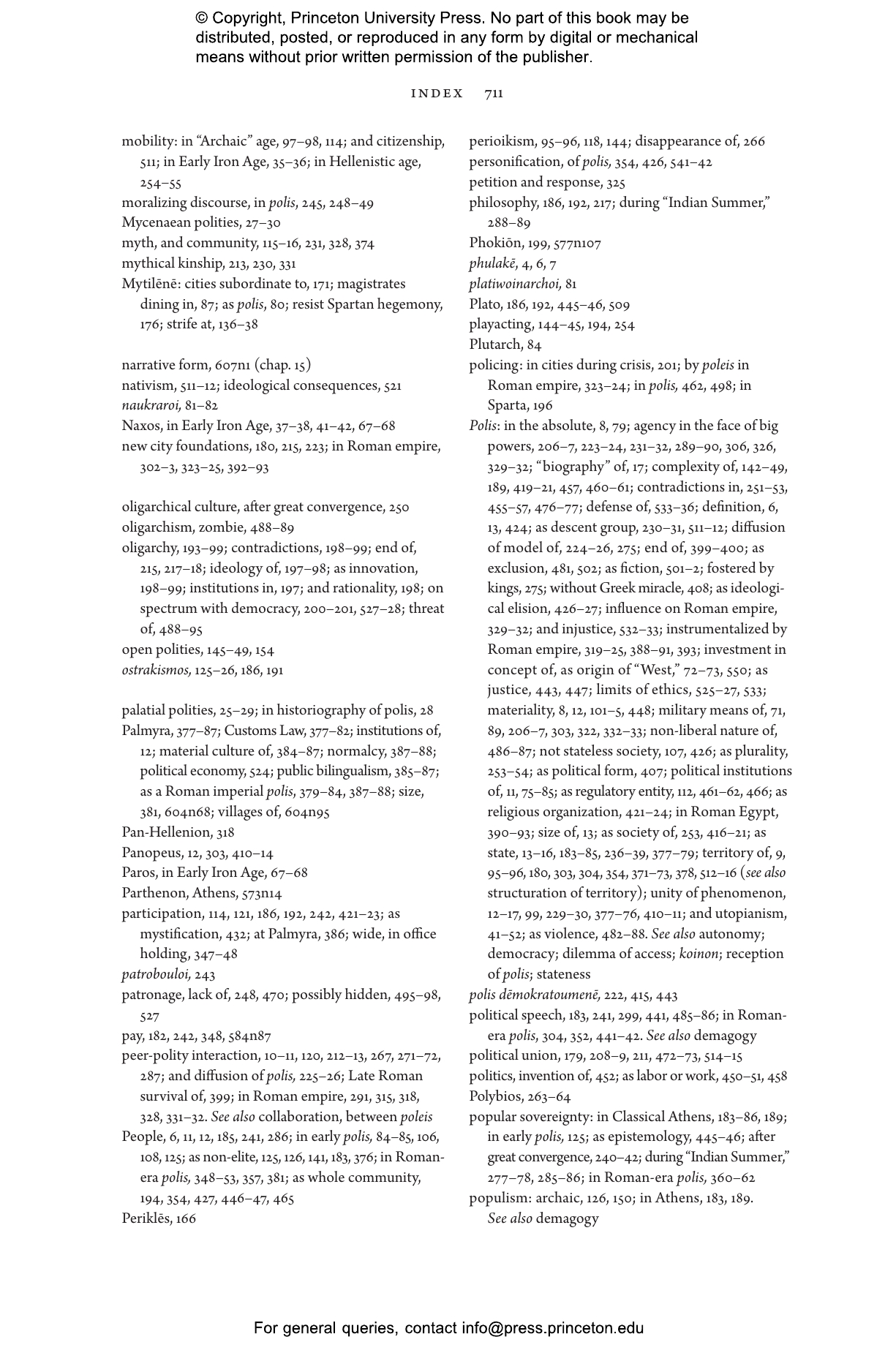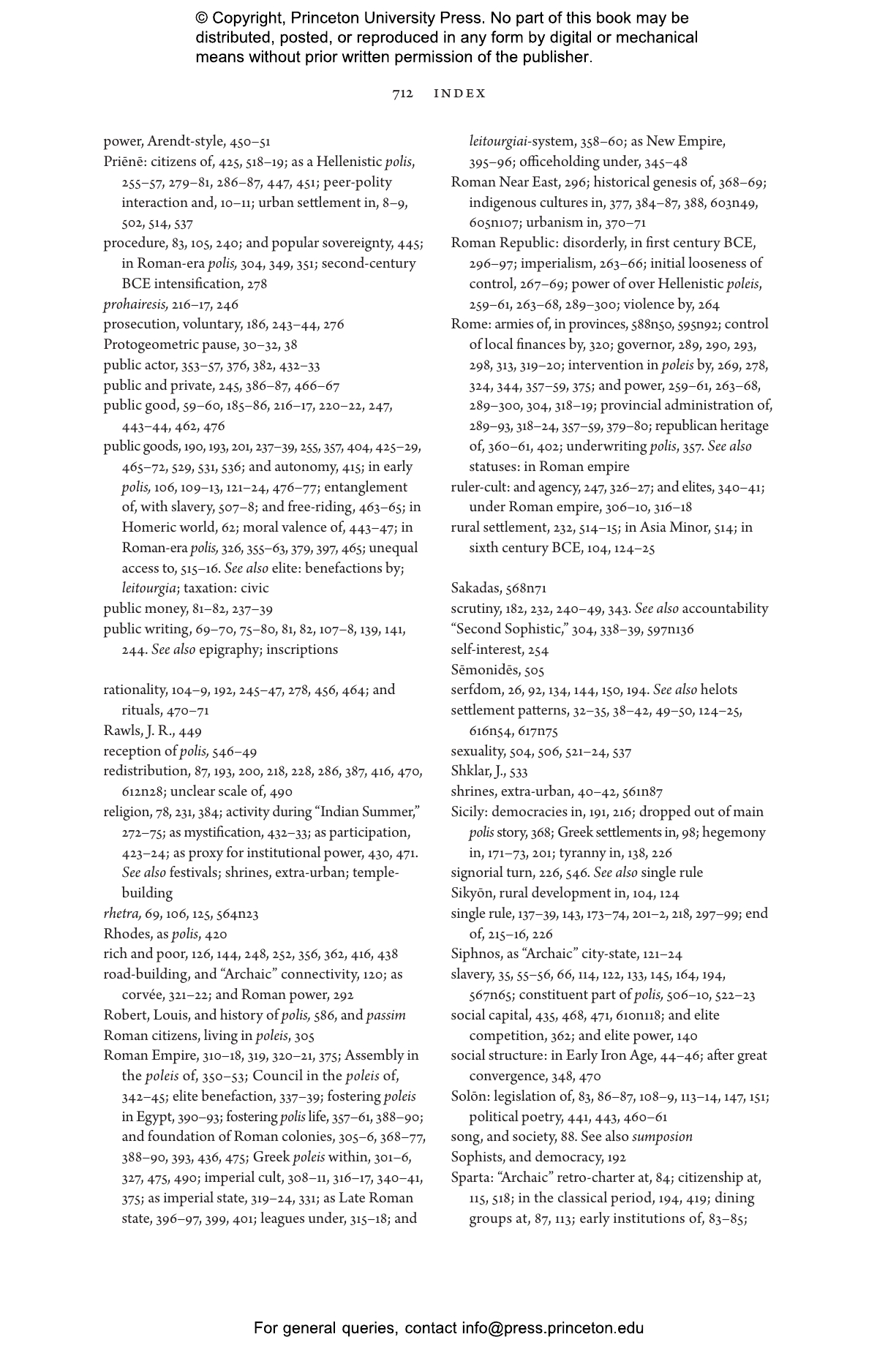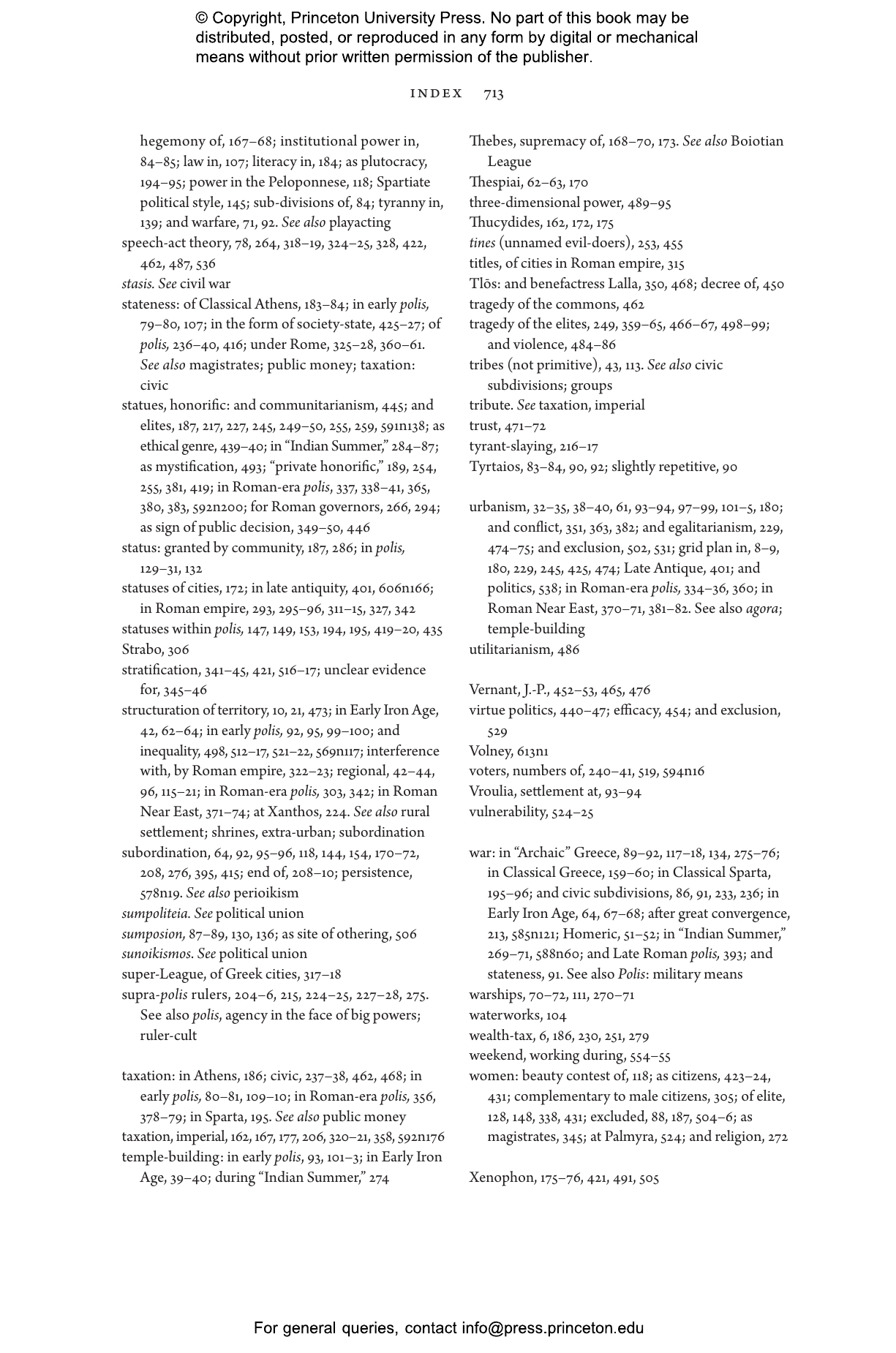The Greek polis, or city-state, was a resilient and adaptable political institution founded on the principles of citizenship, freedom, and equality. Emerging around 650 BCE and enduring to 350 CE, it offered a means for collaboration among fellow city-states and social bargaining between a community and its elites—but at what cost? Polis proposes a panoramic account of the ancient Greek city-state, its diverse forms, and enduring characteristics over the span of a millennium.
In this landmark book, John Ma provides a new history of the polis, charting its spread and development into a common denominator for hundreds of communities from the Black Sea to North Africa and from the Near East to Italy. He explores its remarkable achievements as a political form offering community, autonomy, prosperity, public goods, and spaces of social justice for its members. He also reminds us that behind the successes of civic ideology and institutions lie entanglements with domination, empire, and enslavement. Ma’s sweeping and multifaceted narrative draws widely on a rich store of historical evidence while weighing in on lively scholarly debates and offering new readings of Aristotle as the great theoretician of the polis.
A monumental work of scholarship, Polis transforms our understanding of antiquity while challenging us to grapple with the moral legacy of an idea whose very success centered on the inclusion of some and the exclusion of others.
Awards and Recognition
- A History Today Book of the Year
- A Stevereads History Book of the Year
- Longlisted for the Runciman Award, Anglo-Hellenic League
"Ma really has mastered the voluminous evidence, and it is a joy to watch him interpreting it: there is a lyricism to his descriptions of decrees and statues. . . .Stimulating and ambitious. . . .This is a book anyone seriously interested in the ancient world will want to read."—George Woudhuysen, The Critic
"Polis is a vast, generous and deeply humane book, the work of an extraordinary scholar at the peak of his powers. . . .This is history-writing at its very best. I cannot recommend it too highly."—Peter Thonemann, Times Literary Supplement
"A meticulously researched history of the peculiar political phenomenon of the autonomous city state, ruled by an elite class of peers who shared resources to achieve common goals. Ma’s magnum opus offers a persuasive account of how the polis came to be, and the book does well to dwell on its liberatory political possibilities without losing sight of the fact the polis was also ‘a patriarchy, an enslavement society, a nativist organization, and a polity haunted by the model of an urban aristocracy’. An extraordinary achievement."—Mirela Ivanova, History Today
"Masterful. . . . [Polis] should stand as the standard reference in English on this important topic for many years to come."—Mike Markowitz, The NYMAS REVIEW
"Meticulously researched, intensely reflexive, and engagingly written."—Paul Cartledge, New Criterion
"Wide-ranging and magnificently thoughtful."—Steve Donoghue, Stevereads
"You cannot escape the fact that Polis is a true tour de force."—Fredrik Sixtensson, Axess Magasin
"A milestone. . . . [Polis] is one of the most important books to come out of the field of ancient history in recent years and will remain so for the foreseeable future."—Mischa Meier, Bryn Mawr Classical Review
"This tome will long remain classic exposition of the Greco-Roman poleis. . . . Highly recommended."—Choice
“An extraordinary, monumental book. Polis is the most wide-ranging and intellectually ambitious work in ancient Greek history in a generation, a tour de force that will set the agenda for future historians and one that I predict will still be read many years from now.”—Josiah Ober, author of The Rise and Fall of Classical Greece
“A must-read for any student of ancient history. This is the work of a scholar who has perfectly mastered his topic.”—Alain Bresson, author of The Making of the Ancient Greek Economy: Institutions, Markets, and Growth in the City-States
“A truly breathtaking reading experience. This brilliantly erudite book provides a synthetic vision of the evolution of the Greek city-states over more than a millennium, enabling us to understand the dynamics and meaning of this complex phenomenon. Polis is destined to become a landmark in ancient studies.”—Vincent Azoulay, author of Pericles of Athens
